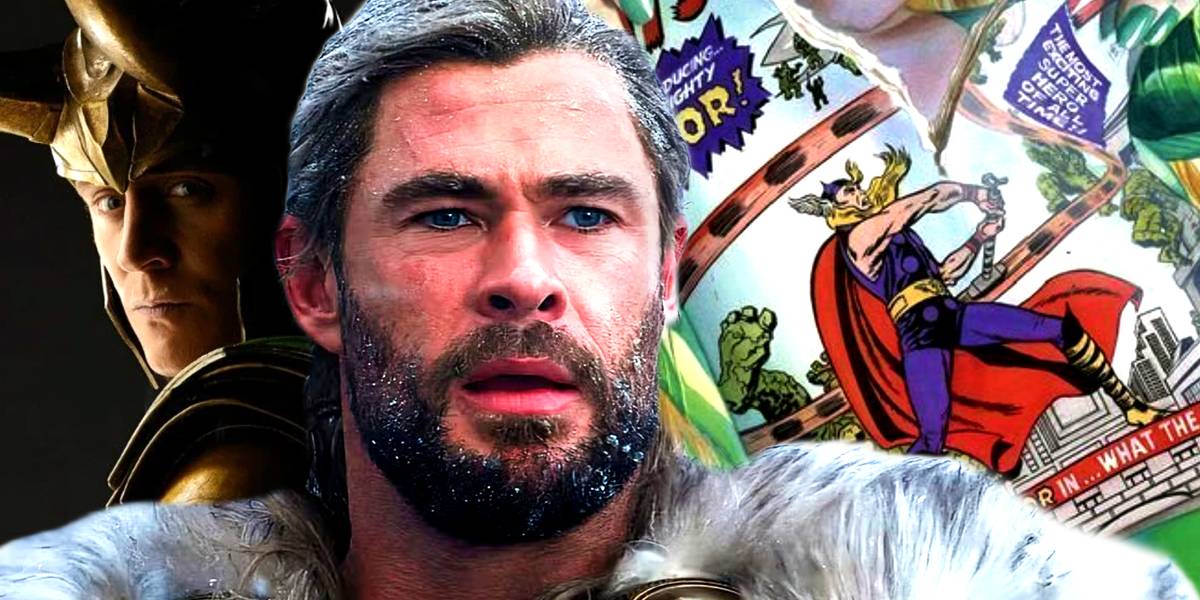[[{“value”:”
Warning! This article contains SPOILERS for Immortal Thor #24Thoris the latest Marvel hero to experience a true, certifiable death, but his demise only underscores how death as a concept has become a temporary obstacle for characters in the Marvel multiverse.
Throughout Al Ewing’s Immortal Thor run, the God of Thunder has faced a wide variety of challenges that have tested his will, from brief encounters with his traditional enemies to titanic battles with the likes of the Elder God Toranos a.k.a. Utgard-Thor. But rather than physical threats and the threat of death, Thor has been dealing with the enigma of how storytelling affects his godhood.
In Thor #24, written by Al Ewing with art by Jan Bazaldua and Matt Hollingsworth, Thor defeats the hordes of Utgard and completes what seems to be his final trial in the form of Mejed, who Thor splits in half rather effortlessly. However, Thor’s undefeated status ends suddenly when Loki stabs him in the back with an arrow made of Eternity, wielded by Loki. As promised by Immortal Thor‘s “even an immortal can die” motto, Loki proves not even the unbeatable God of Thunder can escape death.
Thor’s Death May Not Even Qualify As A Plot Twist
Thor’s “Shocking” Death Was Heavily Hinted At Long Before It Happened
Utgard-Loki has always had control of Thor’s trials throughout Immortal Thor, as the Elder god mentions in Immortal Thor #24. Al Ewing’s run has proved that Thor may be wiser and more powerful than his enemies, but he’ll never escape his role as the protagonist of his story, and every story must eventually come to an end. Likewise, Loki will always be Thor’s foil, and if there’s anyone who could ever claim definitive victory over Thor, it’s the God of Mischief and Stories. With only two issues left, it was evident that no character was better suited to kill Thor than Loki.
Related
Hulk Reveals How He’d Kill Thor, And It Truly Couldn’t Be Darker
Hulk just set a brutal trap for Thor, showing that despite their hero status, both God and Monster have a plan to kill the other off.
But there was no need to delve into Immortal Thor‘s themes to know that Thor’s death was approaching. As the entire storyline’s narrator, Loki has been alluding to Thor’s imminent death all along, explaining how Thor is confined to the limits of a story. Marvel has used the death of “an immortal” to market Immortal Thor‘s conclusion, and the announcement of Marvel’s upcoming Thor #1confirms that Thor will be reborn as “a man with a hammer” in a world where Asgard is nothing but a fictional tale. While Loki’s murder of Thor is depicted as a major plot twist at the end of Immortal Thor #24, it’s far from a shocking moment.
Deaths Have Long Lost Their Meaning In Marvel Comics
Dozens Of Characters Have Removed The Drama From Dying
A large and ever-growing number of Marvel characters have died throughout the years, and many of their deaths have been marketed as the definitive end of their journeys. Steve Rogers’ death in Captain America (vol. 5) #25 is a momentous event in Marvel history, yet it’s later revealed to be false, as he was trapped in his own body, which was frozen in time by the Red Skull. Wolverine’s demise in Death of Wolverine is one of the rare moments where Logan’s body actually expires, but the mutant Persephone later brings Wolverine back from the dead using her resurrection powers.
Spider-Man briefly died and had his body stolen by Doctor Octopus before his soul found its way back into his body, and the deaths of both Charles Xavier and Jean Grey have been at the center of multiple comics since at least the 1980s. Heroes like Elektra, Doctor Strange, Ms. Marvel, and Johnny Storm have had prominent deaths, and yet they’re still alive and kicking in the present-day of Marvel’s sliding timescale. Parallel to Immortal Thor #24, Marvel is killing off Black Panther on page 2 of Marvel Knights: The World To Come #1, which likely won’t mark the definitive ending of Black Panther’s Marvel history, either.
True Character Deaths Require One Sacrifice In The Comic Book Medium
Deaths Can Never Be Permanent To Readers, But They Can Be Definitive For Characters
It’s extremely difficult to let comic book characters stay dead for good, as doing so would require companies to leave those characters behind forever. Even characters like Gwen Stacy and Mar-Vell have returned in some way despite their supposedly definitive deaths, as there’s always new narrative possibilities to explore. However, death can still carry emotional weight in the comic book medium. To achieve this, deaths need to be given proper buildup, space for the emotional aftermath, and clear, lasting consequences that affect the characters and the world around them.
Related
We Already Know How the Hulk’s Story Ends And Honestly? I’m Heartbroken For the Hero.
It seems that no matter what universe the Hulk is in, he’s never going to get a happy ending to his story, which is honestly completely heartbreaking.
For instance, Marvel’s original Ultimate universe was wiped out, killing almost every Marvel hero from Earth-1610. Earth-1610’s Reed Richards survived and evolved into the Maker, and Earth-1610’s Miles Morales officially became part of Earth-616. Most Ultimate characters had a counterpart alive and well in Earth-616, and readers could follow familiar versions of them in Marvel’s main continuity. Still, the destruction of the Ultimate Universe left a lasting impact on a couple of characters. Meanwhile, deaths like Thor’s heavily foreshadowed demise in Immortal Thor #24 simply serve as ordinary milestones in an ongoing hero’s journey.
Immortal Thor #24 is available now from Marvel Comics.
“}]] Thor’s foreshadowed death falls flat. Read More

